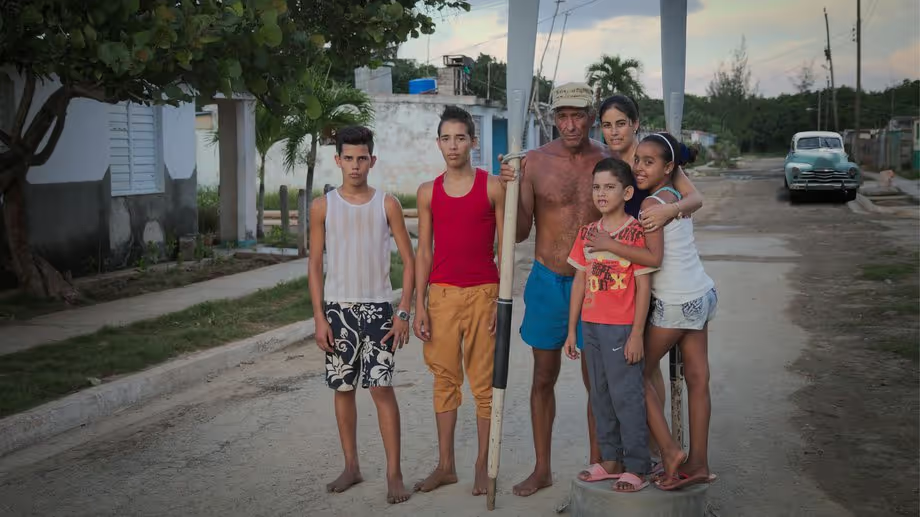Voices of the Sea: Delve Deeper Reading List
Adult Nonfiction

Bardach, Ann Louise. Without Fidel: A Death Foretold in Miami, Havana and Washington. Scribner, 2014.
Since 1959, Fidel Castro has been the supreme leader of Cuba, deftly checkmating his foes, both from within and abroad; confronting eleven American presidents; and outfoxing dozens of assassination attempts, vanquished only by collapsing health. As night descends on Castro's extraordinary fifty-year reign, Miami, Havana, and Washington are abuzz with anxious questions: What led to the lightning-bolt purge of key Cuban officials in March 2009? Who will be Raúl's heir? Will the U.S. embargo end? Bardach offers profound and surprising answers to these questions as she meticulously chronicles Castro's protracted farewell and assesses his transformative impact on the world stage and the complex legacy that will long outlive him.
Eire, Carlos M.N. Waiting for Snow in Havana: Confessions of a Cuban Boy. Free Press, 2003.
Waiting for Snow in Havana is both an exorcism and an ode to a paradise lost. For the Cuba of Carlos’s youth—with its lizards and turquoise seas and sun-drenched siestas—becomes an island of condemnation once a cigar-smoking guerrilla named Fidel Castro ousts President Batista on January 1, 1959. Suddenly the music in the streets sounds like gunfire. Christmas is made illegal, political dissent leads to imprisonment, and too many of Carlos’s friends are leaving Cuba for a place as far away and unthinkable as the United States. Carlos will end up there, too, and fulfill his mother’s dreams by becoming a modern American man—even if his soul remains in the country he left behind.
Gott, Richard. Cuba: A New History. Yale University Press, 2004.
In this concise and up-to-date book, British journalist Richard Gott casts a fresh eye on the history of the Caribbean island from its pre-Columbian origins to the present day. He provides a European perspective on a country that is perhaps too frequently seen solely from the American point of view. The author emphasizes such little-known aspects of Cuba’s history as its tradition of racism and violence, its black rebellions, the survival of its Indian peoples, and the lasting influence of Spain. The book also offers an original look at aspects of the Revolution, including Castro’s relationship with the Soviet Union, military exploits in Africa, and his attempts to promote revolution in Latin America and among American blacks.
Machado, Eduardo. Tastes Like Cuba: An Exile’s Hunger for Home. London: Penguin, 2009.
Born into a well-to-do family in Cuba in 1953, Eduardo Machado saw firsthand the effects of the rising Castro regime. When he and his brother were sent to the United States on one of the Peter Pan flights of 1961, they did not know if they would ever see their parents or their home again. From his experience living in exile in Los Angeles to becoming an actor, director, playwright and professor in New York, Machado explores what it means to say good-bye to the only home one’s ever known, and what it means to be a Latino in America today.
Murphy, Dervla. The Island that Dared. Eland, 2010.
Take a three-generation family holiday in Cuba in the company of Dervla Murphy, her daughter and three young granddaughters and you have a Swallows-and-Amazons-like adventure in the Caribbean as they trek into the hills and along the coast as a family, camping out on empty beaches beneath the stars and relishing the ubiquitous Cuban hospitality. But this is no more than the joyful start of a fully-fledged quest to understand the unique society created by the Cuban Revolution. For Dervla returns alone to explore the mountains, coastal swamps and decaying cities, investigating the experience of modern Cuba with her particular, candid curiosity.
Perez Jr., Louisa A. On Becoming Cuban: Identity, Nationality and Culture. University of North Carolina Press, 2008
Using an enormous range of Cuban and U.S. sources—from archival records and oral interviews to popular magazines, novels, and motion pictures—Pérez reveals a powerful web of everyday, bilateral connections between the United States and Cuba and shows how U.S. cultural forms had a critical influence on the development of Cubans' sense of themselves as a people and as a nation. He also articulates the cultural context for the revolution that erupted in Cuba in 1959. In the middle of the twentieth century, Pérez argues, when economic hard times and political crises combined to make Cubans painfully aware that their American-influenced expectations of prosperity and modernity would not be realized, the stage was set for revolution.

